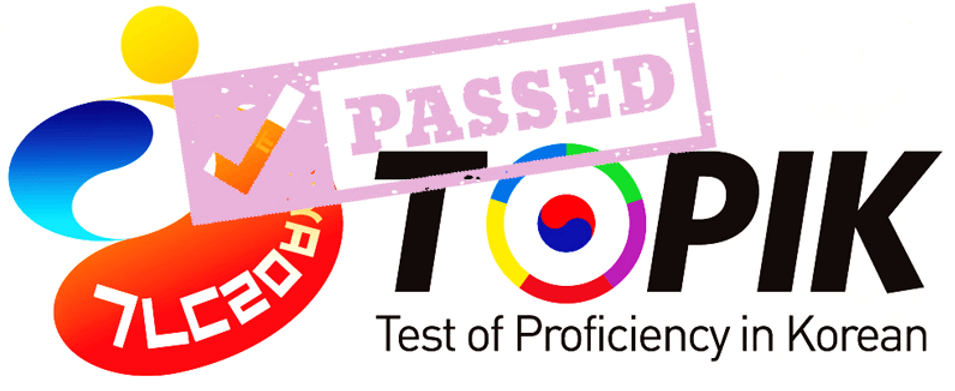The TOPIK (Test of Proficiency in Korean) is one of the most official and authoritative exams for setting learning goals and evaluating proficiency in the Korean language. For students entering a Korean university, applying for scholarships, or even for employment opportunities, a TOPIK score is often required. At the beginner stage, TOPIK may seem challenging and unfamiliar, but with the right strategies and tips, it can be prepared for efficiently. In this article, we’ll cover the structure of the TOPIK exam, how to choose effective study materials, how to make the most of mock tests, and proven strategies for achieving high scores.
1) Understanding the TOPIK Exam Structure
TOPIK is divided into TOPIK I (Levels 1–2) and TOPIK II (Levels 3–6). TOPIK I is designed for beginners and evaluates only Listening and Reading skills. The score determines whether the candidate achieves Level 1 or Level 2. TOPIK II is for intermediate to advanced learners and consists of three sections: Listening, Writing, and Reading. Each section is scored out of 100, totaling 300 points. Depending on the score range, test takers are awarded Levels 3 to 6.
Therefore, candidates for TOPIK II need to identify which sections are their weakest and maintain balanced preparation. While many students feel that listening is the most difficult, in reality, writing plays a crucial role in level advancement. Adjusting strategies according to each section is essential.

2) Assessing Your Level and Setting Target Scores
Before starting TOPIK preparation, it’s important to clearly define your current level and target score. For example, “TOPIK Level 3 is required for undergraduate admission to a Korean university,” or “TOPIK Level 5 is the requirement for a scholarship.” By setting a clear goal, you can create a structured study plan. If you already have a basic understanding of Korean, free online mock tests or past TOPIK results can help assess your current ability.
If you are a beginner, it’s more efficient to first focus on completing TOPIK I. By achieving Levels 1–2, you’ll strengthen your grammar, vocabulary, and sentence structure, making intermediate and advanced study much easier. Even if your goal is a higher level, it’s important to build a solid foundation step by step for long-term stability rather than rushing.
3) Recommended Study Materials: Books and Online Courses
To prepare systematically for TOPIK, use specialized textbooks. Many publishers offer books with titles like “TOPIK I·II,” and there are numerous collections of past exam questions. Practice books are especially useful, as they familiarize students with real exam formats and improve test-taking skills.
In addition, online lectures or free YouTube lessons can be valuable. Finding instructors who focus on specific sections—such as Writing—can help fill in gaps that are often missed in self-study. If possible, enrolling in a professional Korean academy’s TOPIK preparation class can provide direct feedback. This is particularly helpful for the writing section, as self-assessment is difficult without expert correction.
4) Preparing for Listening: Using Various Audio Resources
The listening section is considered difficult for learners of all levels. Questions include everyday conversations, news, advertisements, and interviews, all featuring different speech speeds and intonations. Repeated listening to official past exam audio is essential, but additional practice with Korean dramas, variety shows, or YouTube videos without subtitles can also help improve comprehension.
Selecting familiar topics reduces stress and allows you to focus more on listening itself. Repetition and dictation exercises, as well as mimicking pronunciation and intonation while reviewing transcripts, can strengthen both listening and speaking skills at once. The key is consistency—practice listening every day, even briefly, and don’t give up before gaining confidence.
5) Preparing for Reading: Expanding Vocabulary and Grammar
Success in the reading section requires a solid foundation of vocabulary, grammar, and background knowledge on various topics. Beginners should focus on understanding simple ads or notices, while intermediate and advanced learners must be able to analyze news articles, essays, and explanatory texts. Texts get longer and cover topics ranging from social and cultural issues to science.
To become familiar with the structure of questions, carefully read past exam passages. Highlight unknown words, analyze sentence structures, and create brief summaries to train your reading comprehension. Keeping a vocabulary list of commonly mistaken or unfamiliar words is immensely helpful. Beyond textbooks, you can expand exposure through online news articles, Korean blogs, or language learning apps.
6) Preparing for Writing: Frequent Topics and Feedback
The writing section in TOPIK II carries the highest score weight and is one of the most difficult parts for test takers. The section includes tasks like sentence completion, paragraph building, chart or graph analysis, and opinion essays. Advanced levels require logical and persuasive writing on specific topics, which goes beyond grammar knowledge. It’s important to study common themes such as environment, education, and social issues beforehand.
The most effective approach is to write practice essays and have them corrected by an expert (a teacher or native speaker). Self-study alone makes it difficult to identify mistakes in grammar and expression or to fully understand grading criteria. Writing regularly—just once or twice a week—with feedback will help reduce habitual mistakes during the actual exam.
7) Using Mock Tests: Building Real Exam Habits
Mock exams are essential for TOPIK preparation. Use past exams or online simulation tests, and practice within the official time limits. Especially for TOPIK II, which covers Listening, Writing, and Reading consecutively, training your stamina and concentration is necessary. While daily study can focus on each individual section, it’s a good idea to practice full-length tests under timed conditions about 2–3 weeks before the exam.
After completing a mock test, don’t stop at checking your score. Analyze which questions you got wrong and why. Was it due to lack of vocabulary, unfamiliar expressions, or misunderstanding of instructions? For listening, review the audio again. For reading, re-analyze the passages and take notes on weak expressions and vocabulary. Identifying and addressing weaknesses is the key to improvement.
8) Time Management and Test-Taking Strategies
Poor time management can cause you to rush and make mistakes, resulting in lost points. For example, in TOPIK II, if you spend too much time on the writing section, you might not have enough time left for reading. Set maximum and minimum time thresholds in advance for each section, and stick to them during practice.
Adjusting the order of questions can also help. In the reading section, you may choose to start with shorter questions to build confidence before tackling longer texts. Additionally, always factor in time to transfer answers carefully to the OMR sheet—practice filling it out without errors to avoid costly mistakes.
9) Creating a Korean Language Immersion Environment
Preparing for TOPIK doesn’t mean studying only with textbooks. Language requires consistent exposure and practice. If you’re studying in Korea, try using new expressions during conversations with Korean friends or join a school club for real-life language practice.
If you’re preparing abroad, consider using language exchange apps or social media to practice with native speakers, or create online study groups. Watching K-dramas, movies, or YouTube broadcasts is also highly effective—just make sure not to rely solely on subtitles and instead train listening and reading actively.
10) Mental Preparation and Condition Management
Finally, managing your condition before the exam is a key factor for a high score. Many test takers exhaust themselves cramming the night before and lose focus during the exam. As language exams require strong concentration, fatigue can cause missed sentences in listening or sloppy mistakes in writing.
On the exam day, follow your usual routine, arrive at the venue early to adapt to the environment, and prepare essentials such as ID, writing tools, water, and light snacks. Avoid excessive anxiety during breaks. Instead of worrying “What if I fail?” maintain a positive mindset: “I’ll do my best based on the preparation I’ve done.” This attitude helps you perform at your best.
Conclusion
TOPIK is not just an exam but a measurable milestone in your Korean learning journey. By preparing grammar, vocabulary, writing, and speaking in a balanced way, you’ll gain both exam success and confidence in everyday Korean life. The most important factor is to clearly define your target level, maintain consistency in practice and review, and steadily overcome weaknesses with dedication. We sincerely hope you achieve your desired results in TOPIK and take a successful step forward in your Korean language learning and study life in Korea.


WeBring Service : Provides personalized services to foreigners living in Korea
Exclusive offer: Introducing foreign car rental in Korea, WeBring-SoCar

